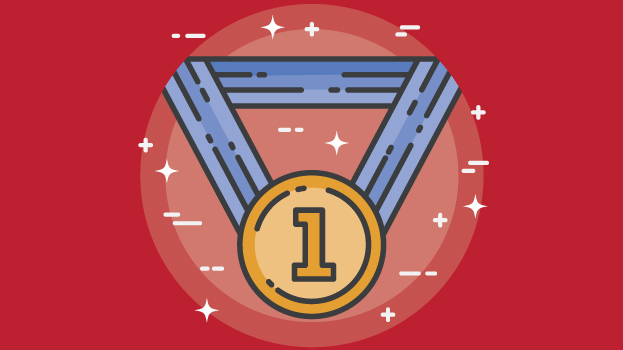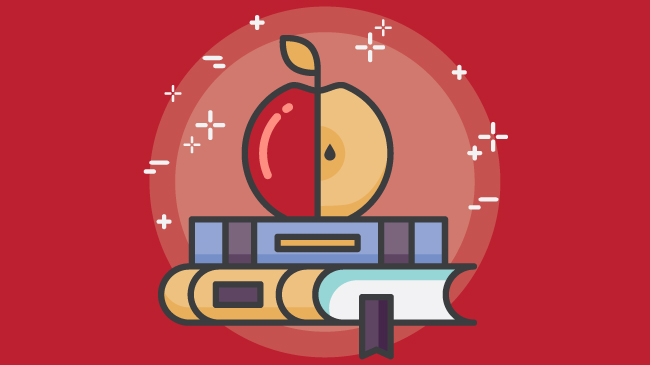Polyglot Group has been doing business with international & multicultural companies based in more than 50 countries all around the world for over 20 years.
In celebration of these partnerships, we will be promoting bilateral trades by interviewing some of the key players. Keen to know more about the current challenges faced by the countries we are representing such as Latin America, Europe, Asia & the US, we are thrilled to share our interview with Charles Nightingale, Chief Customer Officer of the Australia-Israel Chamber of Commerce (AICC).
Could you please introduce yourself and your organisation?
To make an introduction, I will first begin with some contextual information about Israel. With a population of 8 million, Israel’s geographical size is approximately one-third of Tasmania. Due to the land being predominantly desert, Israel has very little of its own natural resources, and as a result, receives a majority of resources from imports. However, Israel does export to global markets—a trade which has undergone significant change.
Just thirty years ago, Israel’s largest export was oranges. Now, a large percentage of exports are coming from the technology industry (despite only 10% of the population working in tech). This trend can be explained by the magnitude and importance of technology, and especially with cyber security in reference to the Israel Defence Force. To put the size of this industry into context; Israel has approximately 400 cyber companies, whereas Australia has approximately 20.
“Israel has more NASDAQ-listed companies than all European countries combined, second only to America.”
The strong involvement in cyber means Israel is considered a world-leader in this area, which is a major contributor to Israel’s high rate of start-ups. Israel has more NASDAQ-listed companies than the European countries combined, second only to America.
Israel’s other strength lies in Fintech, Agritech and Medtech, as well as big data and the Internet of Things (IoT). In addition, Israel’s challenging geography and prevalent desert has actually led to innovation. Without adequate water within Israel, there has been investment in using desalination to become a net exporter of water—an ambition which has seen Israel become highly involved in new technologies. Also, a significant amount of irrigation in Australia is delivered through an agricultural drip-irrigation company called NETAFIM.
With these strengths and investments in mind, AICC has been enhancing bilateral trade between Israel and Australia for close to 50 years. As a not-for-profit and politically and religiously agnostic organisation, our commitment is solely dedicated to Australian/Israeli trade and business. At present, these bilateral trades are valued at around a billion dollars. The dynamic of these bilateral trades can be described as an approximate 80:20 ratio of Israeli export value to Australian export value.
“As a not-for-profit and politically and religiously agnostic organisation, our commitment is solely dedicated to Australian/Israeli trade and business.”
Israel’s success in exporting to Australia has been enhanced by AICC in a number of ways. Firstly, it is reflective of our arrangement of many events, including networking events which provide connectivity within the Australian and Israeli business communities. Our other type of event is the trade missions we run, which operate both as inbound and outbound from Israel. Throughout the years, we have administered about 4 or 5 trade missions per annum.
Israel’s success in exporting to Australia has been enhanced by AICC in a number of ways. Firstly, it is reflective of our arrangement of many events, including networking events which provide connectivity within the Australian and Israeli business communities. Our other type of event is the trade missions we run, which operate both as inbound and outbound from Israel. Throughout the years, we have administered about 4 or 5 trade missions per annum. These independent trade missions operate all across of Israel’s 5 states, and are federated under the AICC. In 2016, we delivered an all-time high of over 20 Trade Missions, both large and small in number to Israel.
Are you subsidised in some way, or is AICC solely membership-based?
We generate revenue in 3 ways: memberships (which include sponsorship), events and trade missions.
How does your membership work?
Our membership provides rare opportunities to network and attend insightful events, and is optimised for both large and small businesses. We offer a great deal of events including executive boardroom lunches (for corporate members and sponsors), as well as SME boardrooms for entrepreneurs. For example, AICC has recently hosted our annual Property Lunch, and one of our signature events, which had a large panel of key industry figureheads, including Greater Sydney Commission Chairman, Lucy Turnbull and Lendlease Group Chief Executive Officer, Steve McCann—an event which was discounted for our members.
We like to make such events open to a wide range of participants, including young people. As such, we offer flexibility around working hours. The AICC frequently host breakfasts (as opposed to a lunch boardroom which can encroach on working hours), as well as offering after-hour segments specifically for our Young Business Forum.
Do members also have the possibility to become directly involved, such as running a specific event based their interests?
Yes, these opportunities are exclusively available to members. To provide our members with an optimised experience, we conduct an annual review into what services they would wish to receive. For example, Optus places value on Cyber Security, so they have requested that the AICC organise a Cyber Security related event with them. In helping Optus with this task, we will work with them to identify ideal speakers and the target audience.
How many members do you have?
We’ve got approximately 16000 people in our database, with about 200 corporate members.
So, if I’m an Australian company looking for opportunities with Israel, what services can you offer me?
I would highly recommend becoming a member with the AICC, as the membership holds many benefits for those seeking opportunities with Israel. Every AICC member receives discounted entry to trade missions, and I highly advise attending these trade missions, due to the opportunity to connect with Israeli companies which are already established in Australia. Each trade mission is based on a certain topic. Some of our past themes have included “Smart Cities” (presented by the Australian Prime Minister’s wife,
Each trade mission is based on a certain topic. Some of our past themes have included “Smart Cities” (presented by the Australian Prime Minister’s wife, Lucy Turnbull), as well as “Social Ventures and Innovation” and “Agrifood”, just to name a few. With the New Year upon us, we are looking forwards to hosting Fintech and Cybersecurity trade missions, as well as an all-important Women Leaders Trade Mission which will be led by Diane Smith-Gander, Chief Executive Woemne and the Hon,. Helen Coonan.
Another one of our plans is to host a commemorative trade mission for the centennial of the charge of the Anzac 4th Light Horse Brigade, which was fought in WWI at Beersheba.
If a company would like to arrive as inbound, what type of assistance do they usually look for? Do they seek information about the market, or do they invest in establishing themselves?
I believe inbound companies seek to do both of these. Our sister organisation, the Israel Australasia Chamber of Commerce, operates in Tel Aviv and is dedicated to helping companies attain inbound traffic. So, an Israeli company wishing to go to Australia will direct their specific requirements to Paul Israel, who is the executive director of this company. In response to the request, Paul Israel will then contact us at the AICC to give information about the company’s interests, goals, market, and agenda.
In review, we have been sought by a great deal of cyber security companies aspiring for Australia’s shores. Together with the Israel Trade Commission, we have proudly hosted an event for 6 start-up businesses working in this cyber industry, and provided them with help in attaining potential sale opportunities, as well as offering networking opportunities.
The Commonwealth Bank, as well as the NSW Government, recently formed an R&D imitative with Avi Hasson, the Chief Scientist of the Economy of the Israeli government. Israel has half a billion US dollars invested in entrepreneurship which has led to a very mature Venture Capital (VC) market and a thriving start-up scene for companies aspiring for global outcomes, especially Australia. In response, many Israeli companies are choosing to focus efforts in identifying business solutions for specific problems.
What specific aspects do you believe assist business in Australia? And to the contrary, what are the main difficulties faced when expanding to Australia?
Due to dramatic geographical differences, one of the biggest challenges faced by Israeli companies is recognising the vast size of Australia, and understanding the demographics (such as that approximately 80% of the population live by the coastlines). In addition, Australia’s geographical location can be challenging, as it presents a 24-hour flight from Israel.
Travel is not the only long process—forming relationships and building a base in Australia is not a quick feat, which can be off-putting and frustrating for many Israelis. Many Israelis are surprised at the lack of communication between universities, the government and industries in Australia, as Israel has a long withstanding history of collaboration between these bodies (especially within tech).
One other cross-cultural discrepancy is the attitude towards risk. Generally, I have observed a risk-adverse mindset within Australian entrepreneurship, especially if the business idea is something novel. By contrast, I believe the Israel business culture is not as risk-adverse, as many entrepreneurs have great confidence in their ideas and always have a global outlook for their ideas. This cross-cultural difference can be challenging for both sides, so one of our missions is to promote awareness and understanding of these differences.
“Although there are certain cross-cultural difficulties, Israeli businesses can enjoy many benefits when coming to Australia.”
Although there are certain cross-cultural difficulties, Israeli businesses can enjoy many benefits when coming to Australia, such as the rule of law which offers fantastic security and protection for businesses. Observing and approaching the Australian market also provides Israeli companies with an understanding of market demands, better preparing them for other markets (such as Asia), and provides a fantastic opportunity to attain knowledge and skills for further global growth.
Overall, I would describe the business relationship between Australia and Israel as a dynamic one, as Australia has shown a great deal of interest in Israel’s innovation. To support this, the AICC trade missions have included various Australian politicians to reach out and visit Israel. For example, the previous Federal Government Assistant Minister for Industry, Innovation and Science Wyatt Roy, MP led an AICC Trade Mission to Israel which culminated in Austrade establishing a landing pad in Israel, as part of the Government’s Innovation Agenda.
With the collaboration that you described, do you foresee further growth between Australia and Israel?
Yes, when I first started my role with AICC, there was a general lack of knowledge about Israel’s success in innovation. Now, that is quite a different story. I believe a variety of social and political factors will lead to the continuation of prosperity between Australia and Israel, such as Malcolm Turnbull’s focus on innovation (he made an innovation statement in 2015), as well as Australia’s increased focus on defence. Overall, I believe the Australia/Israel bilateral trade is destined for a prosperous future, as indicated by the high number of attendees at our trade missions.
In creating our Bilateral Trades Down Under Series, we would like to thank Charles Nightingale for taking the time to provide such an insightful interview.













 January 1, 2017
January 1, 2017 







